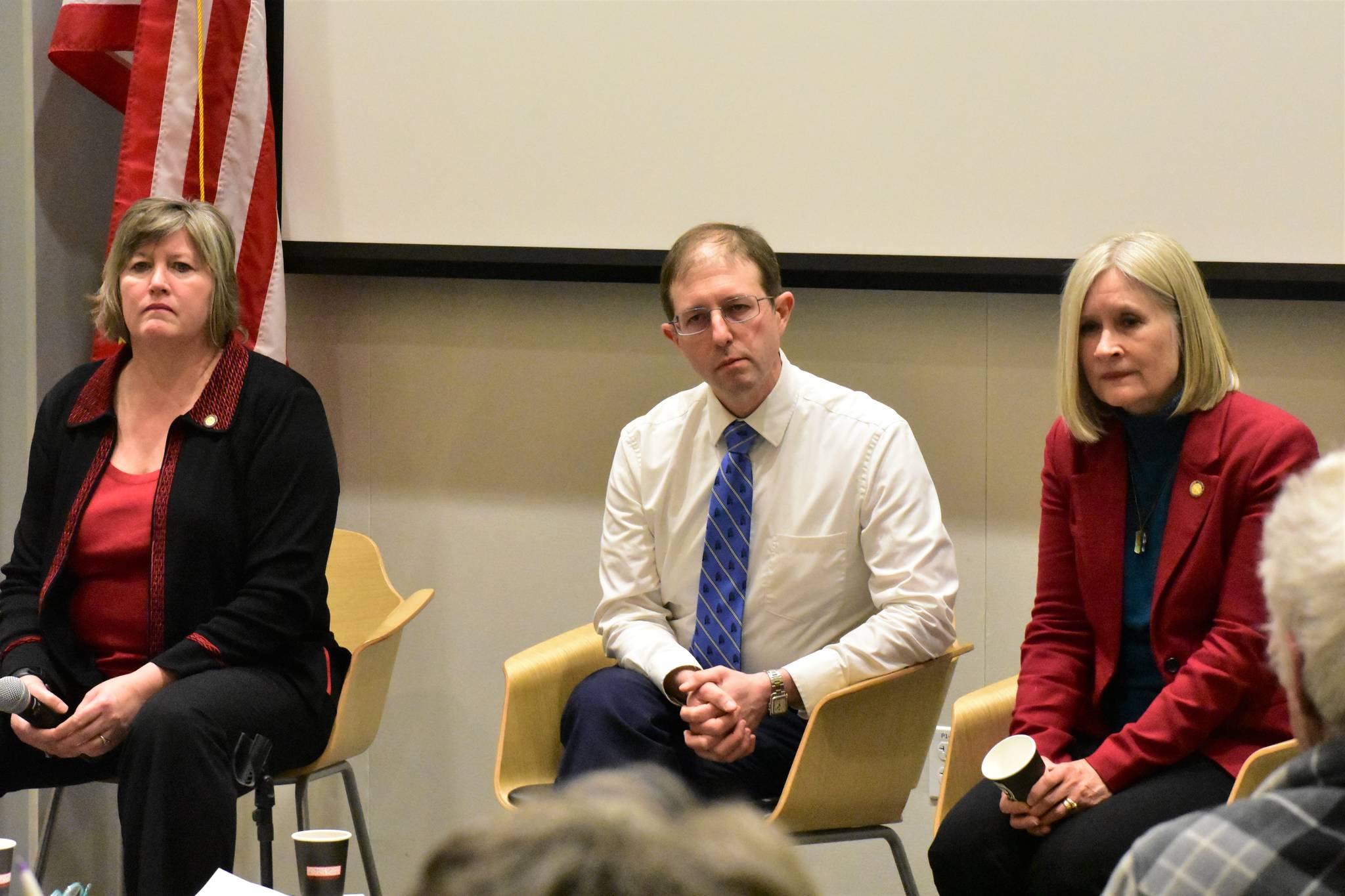Two issues dominated the conversation at a town hall meeting with Juneau’s legislative delegation Wednesday night: the budget and education.
Speaking at the Mendenhall Valley library, Sen. Jesse Kiehl and Reps. Andi Story and Sara Hannan, all Democrats, took questions from a crowd of about 50.
Juneauites at the meeting wanted to know money for the services they wanted was going to be there, and they knew where it should come from too.
“I’m willing to pay income tax because I want educated people to take care of me when I get a few years older,” said Dennis Harris during the question and answer session. “I want my roads plowed and I want to get on the ferry.”
His comments drew nods from many in the audience. The subject of taxes on oil companies came up as well, with some in the audience asking if the delegation supported the Fair Share Act. While not specifically endorsing that bill, the delegation did agree that taxes should play a part in the state’s revenue.
“An income tax ought to be a key part of closing our deficit,” Kiehl said. “I think it should be very broad and as low as we can get away with.”
Kiehl also said he believed the state was leaving hundreds of millions “on the table” by not collecting sufficient oil taxes.
Some have argued, including some legislators, that Alaska’s taxes on oil production could be restructured in some way to obtain a higher percentage of the money generated by the state’s oil reserves.
When asked about education, Story talked about an education bill unveiled by Gov. Mike Dunleavy and Sen. Tom Begich, D-Anchorage, earlier on Wednesday.
In addition to that bill, which Story said had broad bipartisan support, “the federal government is beginning to step up, believe it or not,” she said.
Additional money for education could be coming to the state through federal grant programs.
Not all at the meeting wanted to hear about the budget, though.
One woman, who did not identify herself, asked why legislators thought it was OK to take from the Permanent Fund and Permanent Fund Dividends to pay for state services.
“If I can’t make (my budget) work, I don’t spend other people’s money,” she said.
Story said she understood the woman’s feelings, which makes it very hard for lawmakers to make the decisions they do, knowing people depend on their PFDs.
But it wasn’t quite that simple, Hannan said.
The Permanent Fund was not meant as an untouchable fund reserved for dividends, she said, but an account meant to fund the state when oil revenues were no longer sufficient.
“Do we pay every Alaskan every penny they thought they would get, or do we keep the ferries running?” she asked.
• Contact reporter Peter Segall at 523-2228 or psegall@juneauempire.com.

